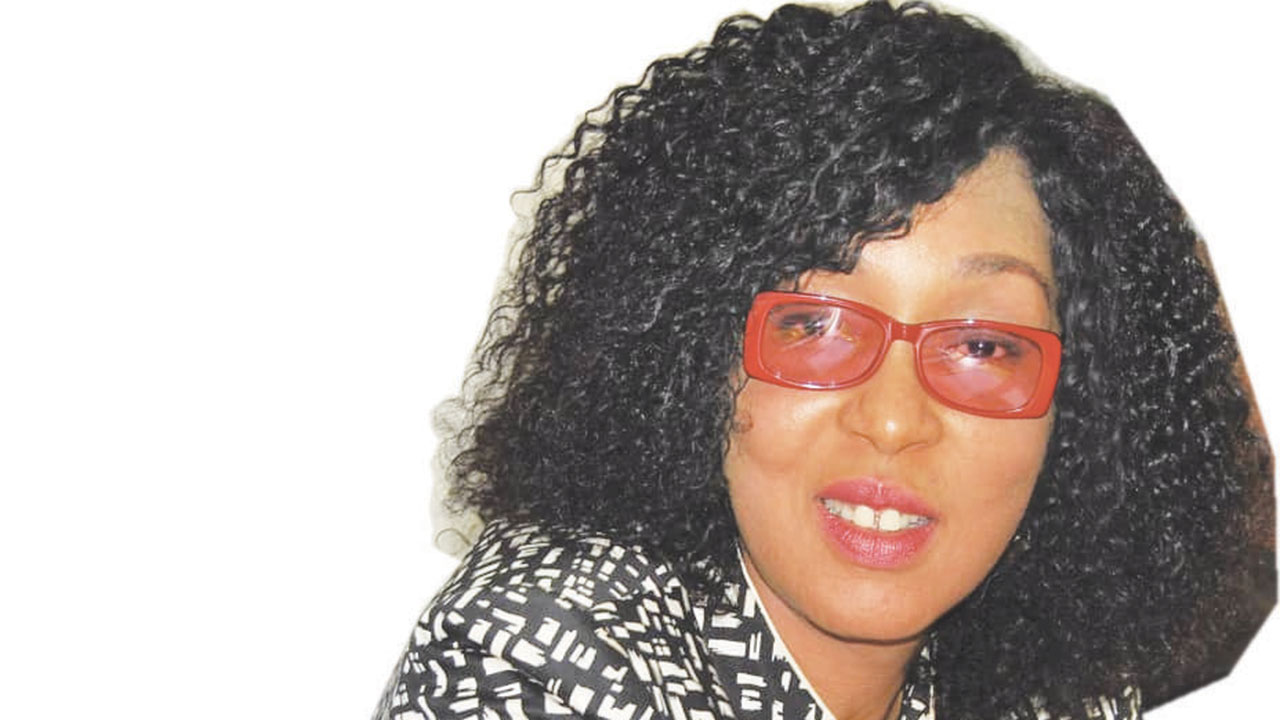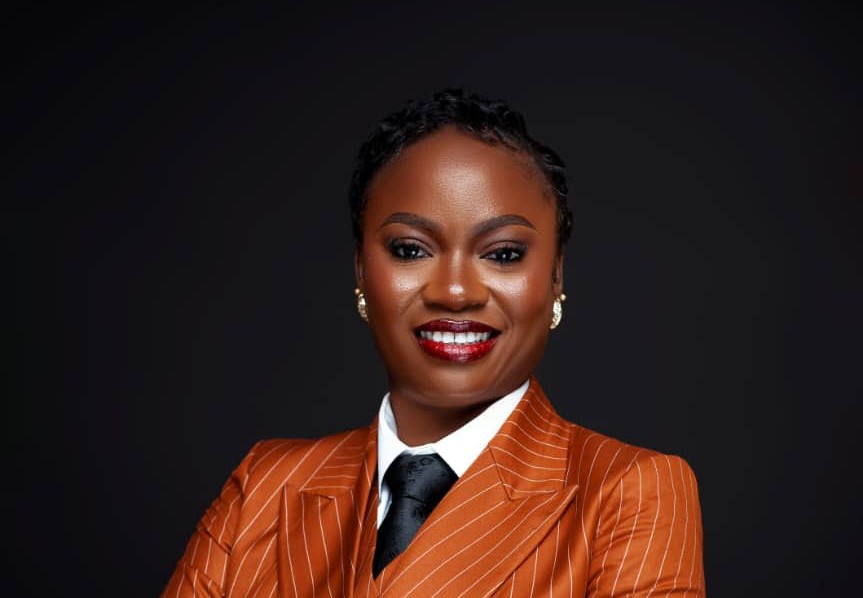
Mrs. Chioma Alonge, a marketing professional, is the first Nigerian Managing Director of Michelin. In this interview with KEHINDE OLATUNJI, she speaks about the challenges of doing businesses in Nigeria, why Michelin stopped manufacturing its products in the country and women inclusiveness in leadership positions.
Most Nigerians believe that Michelin has left Nigeria for Ghana. Are there plans of coming back? And how do you see the market in Nigeria now compared to Ghana?
Michelin never left Nigeria for Ghana; there was never a time that happened. The fact is that, 63 years now, Michelin has been in Nigeria, and we used to have a manufacturing outfit in Port Harcourt and Lagos as the headquarters for commercials.
In 2007, the company shut down the manufacturing outfit. So, it was the manufacturing outfit that was stopped in Nigeria in 2007. The company took a strategic decision for reasons we all know, and those reasons still exist today, which are power and insecurity.
If you remember in 2007, expatriates were being kidnapped in the Niger Delta. We had security issues; at that time we had over 200 expatriates in Port Harcourt.
The second challenge was power. There was an epileptic power condition in Nigeria. Tyre has to do with rubber; so we needed not just constant power but constant power at a certain voltage and consistently at that voltage. If there is a drop in voltage, all the rubber on the production line would be wasted. So, it has to be at a certain voltage throughout a production batch. It was all of these things that made the company take the decision to shut down production in 2007 in Nigeria. After it was shut down, the company was still here, majorly selling tyres. So, that’s what we do up till today. We bring our tyres in 100 per cent importation. We bring these tyres in from 62 factories; Michelin has factories in 62 countries all over the world.
Would you say it’s more profitable to import than to produce here?
Not at all! In fact, it’s one of these things that make you shake your head. Michelin still has farms in Nigeria; do you know we have rubber plantations? These rubber plantations still exist in five states of Nigeria.
Michelin harvests rubber in these states and ships it out to its factories outside the country where tyres are produced and we now import the tyres to Nigeria in dollars. Just like the government is doing with crude oil, they take it out and bring it in as fuel, that’s what we are doing with rubber.
The rubber from Nigeria is of the purest form. I met one of Michelin’s engineers in France, who is from the Netherlands, and he said to me, “Chioma, let me tell you, the rubber from Nigeria is of the purest form.” The rubber we have here is purer than what they get from other countries. We export these rubbers and import tyres in dollars and we all know the issues with foreign exchange. By the time we bring it in, it’s much more expensive.
One of the reasons you left was because of insecurity. We have a new government, which is trying to attract foreign investments into the country. How do you think the government can address this challenge and boost the confidence of private sector operators in the economy?
Like every other company in Nigeria, every other multinational existing in Nigeria, we struggle. We struggle in foreign exchange and we struggle with the economy. We all are optimistic that the policy that the government is putting in place now will make it much more favourable to do business in Nigeria. The ills of doing business and getting forex are real. Any business that has to do with any foreign raw material is impacted with the two windows; we have the parallel market and the official window.
Tyres are excluded from accessing forex through the Central Bank of Nigeria (CBN). So, we still buy dollars from the parallel market; it is hugely exorbitant and expensive. I am a strong believer in Nigeria. I am a strong believer that there will be a better tomorrow for us in Nigeria because this particular market, when you refer to Nigeria as a mass market, it has potential. It’s the biggest economy in Africa; once you talk about Nigeria, the number alone makes it attractive.
Now, Michelin has divided the company into what we call sub-Sahara in Africa. In terms of size, there is no other country that comes close to Nigeria. There is no reason we shouldn’t have the plants here if the conditions are enabling.
So there is hope?
There is always hope.
A lot of people still believe that your company has not been able to tap into the local market because your tyres are not affordable so to say. Don’t you think the company should make its products a bit affordable and even set up more branches in the country?
Absolutely, there is a huge market in Nigeria for our tyres. The fact that you have to import these tyres makes it very expensive because of forex. It is expensive when it gets here but the reason we still push and encourage people to have a rethink is because 80 to 90 per cent of road accidents are as a result of punctured or busted tyres, even the Federal Road Safety testified to that. Michelin will not reduce its standards. It is expensive because the tyres are of premium quality. We sell safety.
You were introduced as the first female MD. How has it been as a woman in the corporation and also as a mother and a wife?
You said the first woman and I would say not just the first woman but the first Nigerian Managing Director. We have always had foreign MDs, our last MD was French, the one before him was German, the other one was American. So, the company has said, “your fate is now in your hands.” We have our first Nigerian MD because we are developing local content to empower our people. If you talk about the need to grow the Nigerian market, I will be much more passionate about it than somebody who is not from here. So, when you talk about how it feels about being the first female, it’s basically about how do I feel about being the first Nigerian to head the agency in Nigeria, not just about being a woman.
The burden of leadership makes you know that the lives of others and their families are dependent on your actions or your inactions. That is what keeps me awake at night.
Has there been any form of discrimination being a woman in the Nigeria corporation?
You mean for me as a person? I think the burden we have as women is the burden the media puts on us. The burden a woman has in leadership is just stereotypes; it’s the fact that society expects you to act in a certain way. I don’t think my needs are different from the needs of any other man who is an MD. I need work-life balance, and the male MD needs a work-life balance too; that’s it.
When we say, ‘how is it as a woman,’ that’s a stereotype. A woman is first a human being before she is made a leader and when we get to leadership, one thing is there are certain traits. People will follow you when they know your vision and you are transparent with the vision. Usually, to be a leader means you are going somewhere. What does it mean to lead people? You have a destination; people have to clearly see your destination.
One rule about leadership, which I imbibe strongly is, point to your direction. Have a definite and clear direction and get people to see it and when they do, it’s easier to lead them.
Michelin makes it a lot easier for women. You know why? It’s because Michelin has three principles, which are people, profit and planet. In that hierarchy, people are first. Michelin is all about people, they give women a level playing field. As a woman in Michelin, you excel in your career. Women are given enough opportunities to excel; you don’t feel inhibited and you don’t feel like there is a glass ceiling. The top echelons of Michelin have meetings with their female employees from different countries and ask us questions on inclusion and a level playing field. Michelin is several steps ahead of other companies in trying to include women in leadership and ensure that they have a voice and they are deliberate about it.
What is your advice to other companies to ensure inclusivity?
Companies should be deliberate and intentional about having women onboard. They have a lot to offer. Women see the salient facts that men do not see. I play competitive chess and I have two silver medals. As a chess player, I read body language. Women read body language and they are more intuitive than men. Even in businesses, organisations that have given women a seat at the table succeed. When men are looking, women are looking even deeper. When men are seeing, women are not only seeing but they are also sensing.
What policies would you like to see women in leadership positions either in politics or boardrooms encourage?
What I will say is send the elevator down. This means that when someone attains a certain level, they should send the elevator down to pick more females and don’t shut the elevator.
Secondly, be deliberate. We all talk about why people should have mentors but I have gone a bit further than that. It’s not just about mentoring, but also being a sponsor. Don’t just mentor, be a sponsor. When you are at the table where somebody is making a request for somebody to do something, mention somebody you know. Don’t just mentor her and stay quiet, move further. Many women have had mentors; what they now need are sponsors, people who will call our names when there is a name to be called. If nobody mentions your name, nobody will see you. Even in the Bible, when King Pharaoh had a dream, someone said, ‘I know somebody.’ Talk about them when there is an opportunity. Be intentional about them. Sponsor more girls. When we do that, we are going to have a critical mass of females in leadership positions who are financially empowered and our voices will be heard.
Choosing a career path is quite challenging; how were you able to overcome such a challenge?
I wanted to be a pilot. I will say to the young people, dream your dream. Spread your wings and fly. I wanted to be a pilot but my dad said ‘no, you can’t be that, you need to be stable. If you fly, you may not be able to get married, settle down and raise a family.’ So, he brought me into thinking that I needed to do something that will make me a wife and mother. I got into marketing and in my first job, I was exposed to brand management and so, I fell in love with branding and I realised that it’s brands that drive businesses. I will say to young people, be passionate and drive your passion. When you do a job you love, it will no longer be a job, and you will be enjoying what you are doing. I look at Michelin not as a business but a brand.
Advice to women
Don’t expect or desire handouts. Be serious as a female professional and executive, go further. When men put in two hours, put in four. Be serious. It’s not about you as a female but as an executive. Don’t play truancy. When you are in a meeting, speak up; even if you are nervous or afraid, do it. Be seen! When the men do one hour, put in an extra hour. Be seen to be serious and if you are in a good organisation, you will be seen. Don’t lean on men; if you do, you will not get the respect that you deserve. Stand on your feet and understand the business and product in whichever company you are working for. Push yourself further and you will excel.
How do you cope with the responsibility of managing Michelin and being a mother?
I prioritise my life. I give myself time. I take out time to rest. There is a time to work and there is a time to be with my family. They are both equally important. Like I said, Michelin knows you have a family, so they give you time. The same way a man will prioritise his home.
There is nothing different. There is no difference in the closing time for men or women in an organisation.
How can women achieve financial stability to forge ahead?
Be curious and hardworking. How do men achieve financial stability? What do they do? Don’t put yourself in a fix by saying I am a woman, therefore, I need to do things differently. How do men achieve financial stability? They learn a trade and after putting themselves in it, they start to earn from it.
The same way, a woman can learn a trade and excel in it. If you want to go the way of the classroom, a man goes to school and earns a degree and goes to work with that degree, the same applies to women. I don’t subscribe to us having a victim mentality. We all are human beings. The same way a man would apply himself, a woman should apply herself. That is my sincere opinion.






